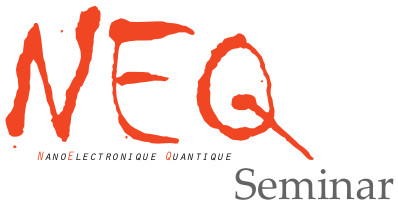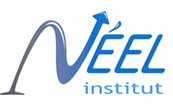- Accueil
- Institut Néel
- Équipes de recherche
- Pôles & Services techniques
- Travailler à l’institut
- Partenariats
- Actualités
- Agenda
- Annuaire

Résumé/Abstract : Quantum computing holds the potential to solve key tasks exponentially faster than classical algorithms. Semiconductor spins are among the leading candidates for a highly scalable qubit platform. Hole spins offer many advantages such as all-electrical spin manipulation without micromagnets or antennas, as well as decoupling from the nuclear spins, and offer novel physics such as direct Rashba spin-orbit coupling, exchange anisotropy and longitudinal coupling which could be developed into valuable assets for quantum computing. In this seminar, I will present recent progress on two different hole spin qubit platforms: Ge/Si core/shell nanowires and Si fin field-effect transistors (FinFETs). The Ge/Si nanowires offer exceptionally strong yet electrically tunable spin-orbit interaction, the direct-Rashba SOI, allowing unprecedented control of key qubit parameters. We have recently identified sweet spots with strongly enhanced coherence, can operate the qubits at temperatures up to 2 K, are implementing an exchange based CROT 2Q gate and present dispersive qubit readout using STO varactors. Si FinFETs have championed classical transistor scaling for a decade, integrating billions of FinFETs on a chip. We have demonstrated 1Q gate fidelities at the fault-tolerance threshold at 1 K and can operate up to 5 K, potentially allowing in-situ integration of the control electronics. We have implemented a CROT gate with spin-orbit induced anisotropic exchange interaction, opening the door to high fidelity and fast 2Q gates. Recently, we have also observed phase driving of such qubits at radio frequencies.
